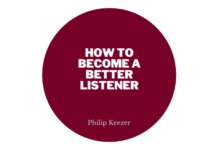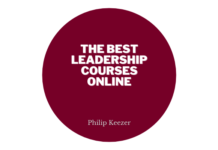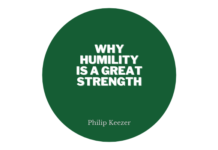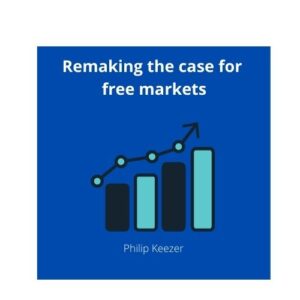The news media’s traditional maxim of if it bleeds it leads is as true today as it’s ever been. The only difference is now the competition for news audiences is much fiercer. The media was once assured huge audiences of loyal viewers and readers but the internet has changed all that.
Thousands of online magazines, channels, blogs and podcasts now compete for those same audiences and ad-revenue. This competitive pressure has given us twenty-four hour news and a seemingly endless cycle of drama.
Against this backdrop, it’s easy to forget that there has likely never been a better time to be alive than now. So why aren’t we more optimistic as a society?
Cognitive psychologist Steve Pinker explains the disparity between the anxiety of the news cycle and the relative stability of daily life thus:
“As long as the rate of disasters and atrocities doesn’t fall to zero, there will always be enough to fill the news”
So, from time to time, we should step back and consider the trends we can be positive about.
Here the statistics speak for themselves. According to the Human Progress website, reasons to be cheerful include; a 372% increase in average income per person (adjusted for inflation); a 22% increase in food supply, eradicating extreme hunger; and a 29% increase in life expectancies – all over the last half century.
So, what has delivered this remarkable progress in our material conditions?
The primary historical change which coincides with these huge leaps forward in the human condition is the emergence, in the 19th and 20th centuries, of recognisably modern, free market economies. This model of economics works for many reasons, the primary one being the efficient distribution of resources.
The Hidden Hand
Enlightenment philosopher and economist Adam Smith identified this organising principle as the ‘hidden hand’ of the market. Smith’s central insight was that an economy is an organic thing and, left to their own devices, free people in a free market deliver an incredible range of social goods.
In Smith’s own words:
“[Without trade restrictions] the obvious and simple system of natural liberty establishes itself of its own accord. Every man…is left perfectly free to pursue his own interest in his own way…. No human wisdom or knowledge could ever be sufficient (for) the duty of superintending the industry of private people, and of directing it towards the employments most suitable to the interest of the society.”
An example of this concept in action is price setting. Without outside interference, the price of any product will be determined by the demand for that product in the market. More demand will inflate prices, while less will have the opposite effect. These price signals then feed into production processes too and spread throughout the market, patterns of production and consumption feeding off each other to deliver the efficient distribution of resources.
This is the hidden hand, the organising principle, that has delivered such prosperity since Adam Smith’s time.
The return of managed economies
Despite the human progress and prosperity that has been delivered, recent decades has seen belief in free markets begin to retreat.
Political polling suggests socialist policies have widespread support amongst younger voters in particular. Riding off the back of this support, populist left-wing candidates like Bernie Sanders and Jeremy Corbyn have run campaigns for power.
While the campaigns proved unsuccessful, institutional support for socialist policies is increasing nonetheless. Whether it’s the US Treasury Secretary calling for a global minimum corporation tax or the EU reviving the idea of mandatory gender quotas for European businesses – state intervention and regulation is back in vogue.
The key question is, why?
Equality of opportunity or equality of outcomes?
The answer is fairness.
As argued by Jonathan Haidt, the instinct for fairness is innate – an inescapable part of what makes us human. As with any fundamental human instinct however, the instinct for fairness can be taken advantage of by bad actors.
Fairness, in the fundamentally human sense explained by Haidt, means equality of opportunity. Every child should get a turn at the playground game and every adult should be free to pursue their self-interest in the economy.
Socialism however has a different definition of fairness, one based on equality of outcomes.
Equality of outcomes is, of course, impossible.
Even if everybody wanted exactly the same outcomes in life, enforcing equal outcomes on entire human populations is an exercise in folly. An historical example of this instinct in action might be Chairman Mao’s ‘great leap forward’. Here, to achieve equality, centuries old farming communities were swept away by the state, and people sent to live and work on government run ‘communes’.
The result? A collapse in the food supply and human tragedy on an epic scale.
A more contemporary example is rent controls. Faced with the high rents, states have repeatedly intervened to cap the price of rent – the logic being this will keep prices low and increase affordability. The reality however, as proven time and again – most recently in Berlin – is that this price setting has the opposite effect. It forces landlords out of the market, leading to a reduction in supply, and a worse situation for renters.
Economic interventions, no matter how well intended, will have unintended consequences.
Learning from history
Beyond examples such as these, there have also been real-time historical experiments where controlled and free economies have been run in parallel.
The post-war story of East and West Germany for example showed how quickly the fortunes of a free economy vs a managed economy can diverge. By the end of the experiment the only way the authorities in the East could stop East Germans leaving for the west was by force.
A similar story can be told of North and South Korea. While the free market South now leads the world in technological innovation and human well-being, the communist North has become a despotic relic of the Cold War.
Conclusion
Smith’s Hidden Hand will always deliver better results than any attempt to manage an economy centrally. The reason for this is data. How could any individual or state possibly manage the vast amount of data contained in any economy, every single transaction, purchase, price point and product?
The answer is, they couldn’t, and history shows that attempts to do so end badly.
While free markets won’t deliver equality of outcomes they do deliver a better situation for everyone, and equality of opportunity to participate in the market and secure a financial future. The free market works.
At Grindstone we continue to invest in this central idea of free individuals in a free market. Through the businesses we work with we are creating platforms that will allow individuals to take control of their economic fortunes as they innovate and build businesses, generating wealth for themselves, their families and those they may employ in their ventures.
It is through the free market that individuals are liberated and society prospers. This central insight from Adam Smith is key to Grindstone’s mission and remains as true today as it was when first put to paper, more than 200 years ago.














